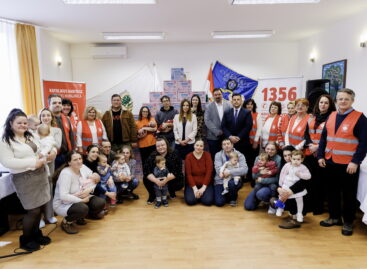Sustainability and competitiveness are incentives for agriculture – a lesson learned from the CSR Afternoon
At the CSR Afternoon organized on July 19, 2022, CSR Hungary and Hipp Kft.’s event on social responsibility and sustainable agriculture, in Hanságliget, the focus was on sustainability and competitiveness as incentives for agriculture.
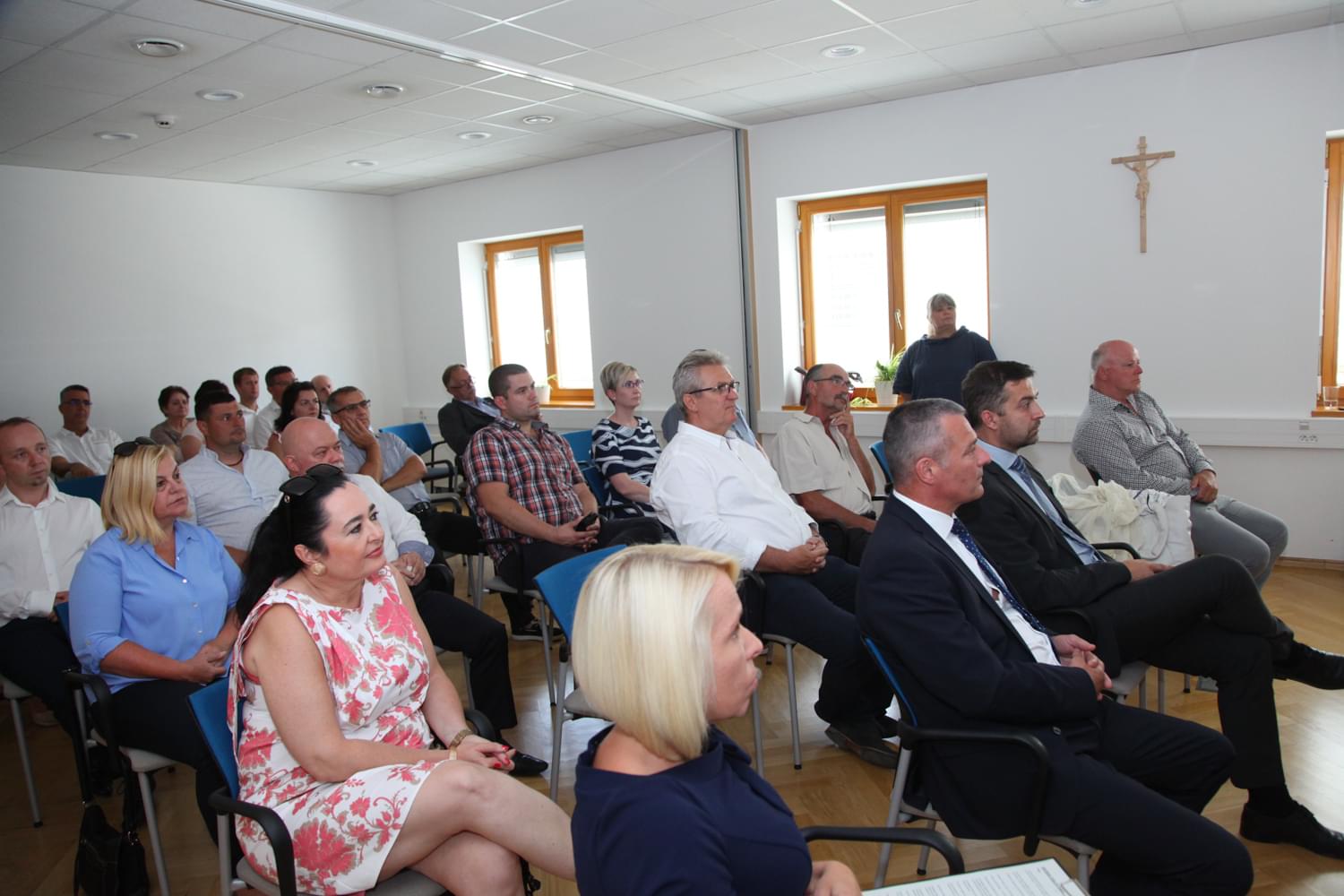
The focus is on practice, everyday life…
Júlia Takács, the founder and managing director of CSR Hungary, said:
“The aim of the annual summits is to integrate sustainable practices (Aim: balance between the economy, society and the environment) into everyday business operations. Also in order to achieve the SDG (Sustainable Development Goals), which also ensures a higher quality of life at the local level. Also, to create the practical background of ESG (responsible sustainable corporate governance) principles in Hungary. We think it is particularly important for CSR Hungary not only to hold events with such a theme in Budapest. The CSR Afternoons in all parts of Hungary provide a suitable framework for getting to know the problems and sustainable solutions of local businesses, serving as a model for companies operating in their own or other industries. The focus is on practice, everyday life…”
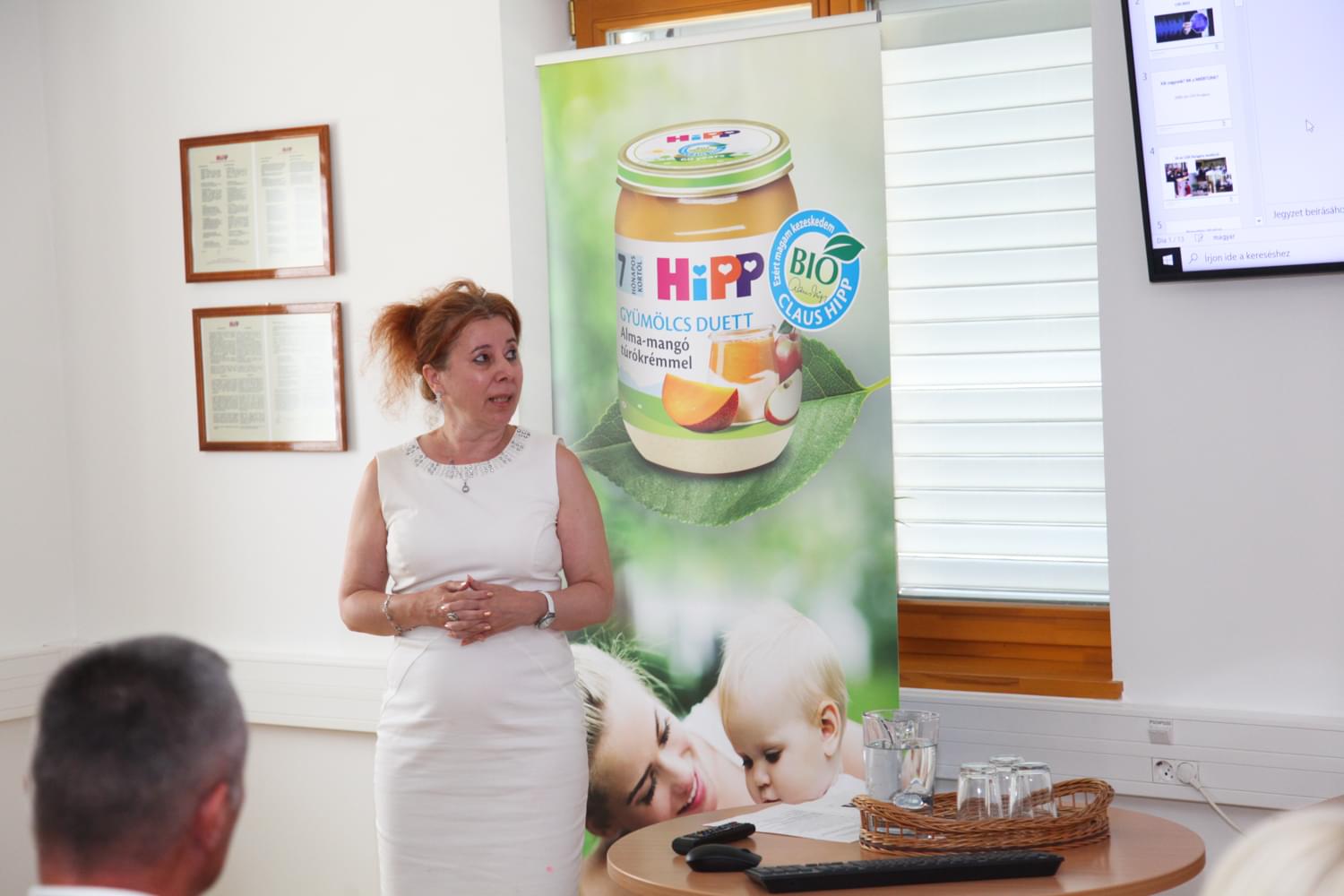
Júlia Takács, the founder and managing director of CSR Hungary
Sustainable (in some cases even self-sustaining) food security has been “revived” by COVID and the Russian-Ukrainian war: the supply chain system has broken down, because we are unable to continuously supply the world’s inhabitants with the right amount and quality of food. In fact, the existing conflicts deepened.
Let’s think about how agricultural systems, which are extremely sensitive to climate change, can manage all this with the ever-shrinking water and land resources. The increasingly volatile, higher food prices…
That is why it is important to learn about working, practical examples at the local level. The history of Hipp began not a few years ago. The backbone of the HIPP road is biodiversity and respect for natural resources. Thinking about tomorrow too!
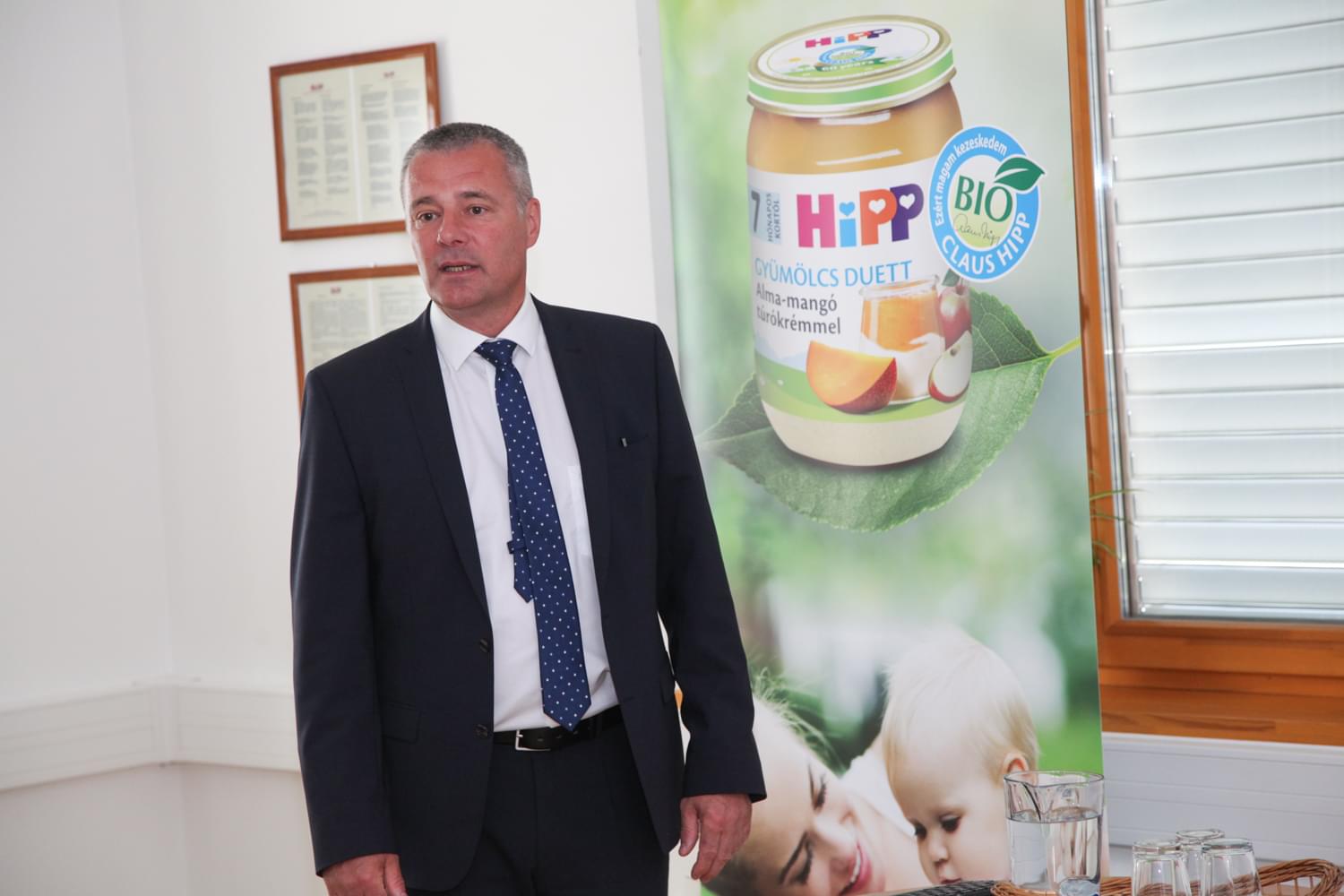
Dr. Csaba Bódi, the managing director of HIPP Producterelő és Kereskedelmi Kft.
Dr. Csaba Bódi, the managing director of HIPP Producterelő és Kereskedelmi Kft., emphasized:
“The HiPP philosophy is ‘The best from nature, the best for nature.’ Our goal is to produce healthy and delicious organic baby foods that meet the latest nutritional standards, are of high quality and are in harmony with nature.
HiPP is a requirement for authentic activity. We are committed to our customers with consistently high quality production. We provide trust and respect to our partners. Innovative, sustainable products help strengthen sustainable consumption. For HiPP, social responsibility is an essential basis for successful entrepreneurial activity.”
More value and smaller ecological footprint!
Hipp aims to create more value in the areas of social development, safety and health, and performance. At the same time, it wants to further reduce the amount of resources used in the areas of energy, raw materials and waste, as well as water and waste water, thus reducing the ecological footprint of its operations and products.
Thanks to the use of renewable energy sources and climate protection projects initiated worldwide, all HiPP plants operating in the European Union produce in a climate-neutral manner.
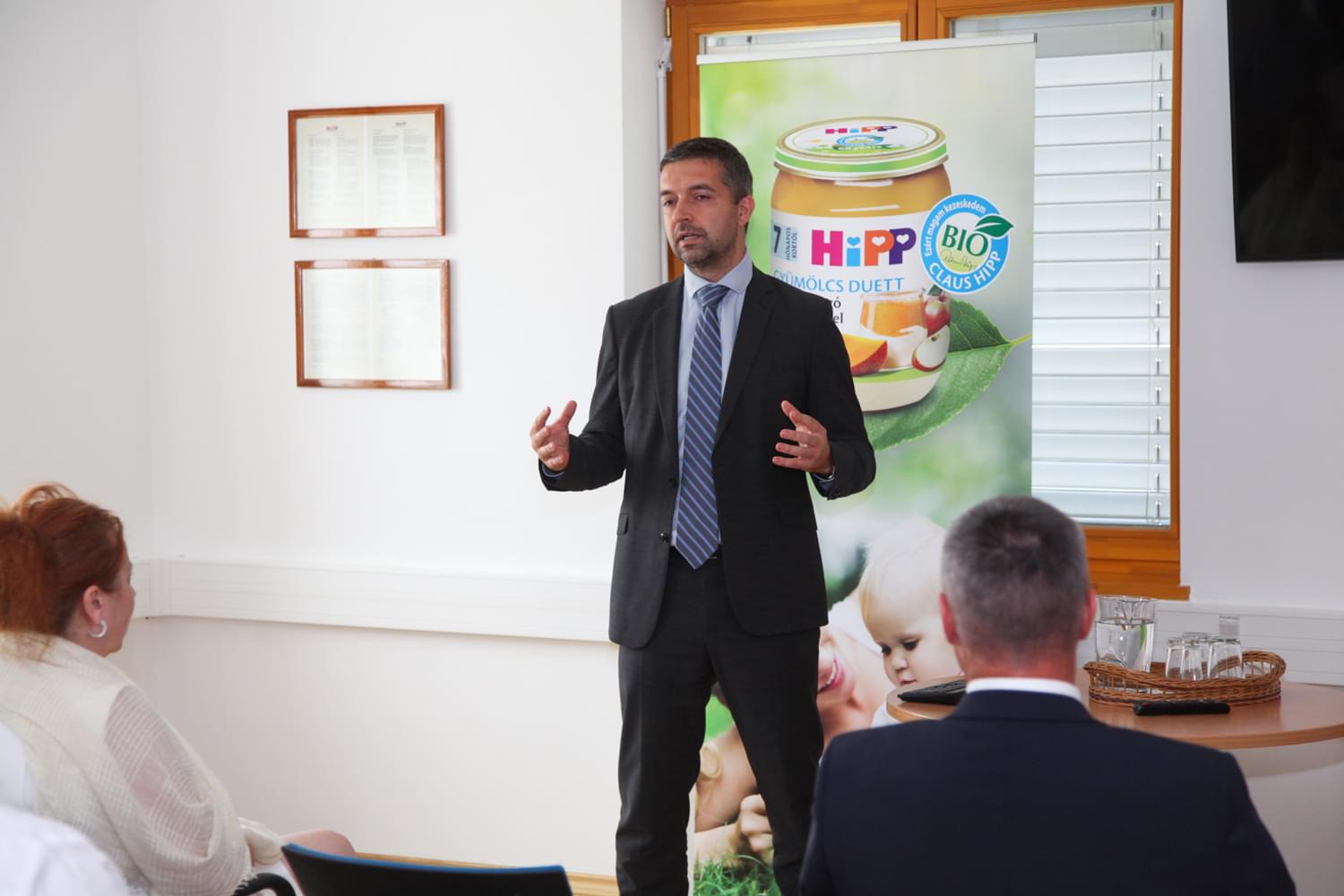
Zsolt Feldman, the Secretary of State for Agriculture and Rural Development of the Ministry of Agriculture
“For the government’s agricultural policy, it is important to create a balance between the economic, environmental and social dimensions of sustainability, the importance of which is confirmed by the current emergency situation.” – announced Zsolt Feldman, the Secretary of State for Agriculture and Rural Development of the Ministry of Agriculture.
The State Secretary pointed out that the tools of the Common Agricultural Policy between 2023 and 2027 were designed in such a way that they contribute substantially to the continuation of agriculture and food production in a sustainable manner.
From the point of view of agricultural producers, the Ministry of Agriculture approaches the green goals affecting agriculture in such a way that those concerned are able to realize them.
He added that the most effective way to persuade a farmer to adopt a more sustainable farming practice is not through punishment, bans or restrictions, but through incentives or being motivated by his market partners, through functioning economic relations, of which Hipp Kft.’s activities are a great example.
He explained that the size of the areas brought into organic farming has doubled in 5 years, so it currently exceeds 300,000 hectares. The Ministry of Agriculture has set itself the goal of continuously increasing this ratio to 10% in the coming years. Therefore, a new program supporting organic farming was launched, in which 3,300 farmers participate, and through which the ministry is now supporting the transition to organic farming or its maintenance on 250,000 hectares of land, he added.
Zsolt Feldman considers the Ministry of Agriculture to be the ministry of natural resources, since a priority task is not only in theory, but also in practice the development of an environmentally conscious way of thinking, the shaping of attitudes and the enforcement of sustainability aspects.
The State Secretary also mentioned that the safety of the food supply remains a fundamental priority for Hungary. Environmental aspects and sustainability goals must be further strengthened, but this process must not jeopardize the competitiveness of farmers, emphasized Zsolt Feldman.
Related news
Top 5 sustainability trends in 2026 – a new era may begin
🎧 Hallgasd a cikket: Lejátszás Szünet Folytatás Leállítás Nyelv: Auto…
Read more >Related news
Storck Hungária: new sales manager has arrived
🎧 Hallgasd a cikket: Lejátszás Szünet Folytatás Leállítás Nyelv: Auto…
Read more >






